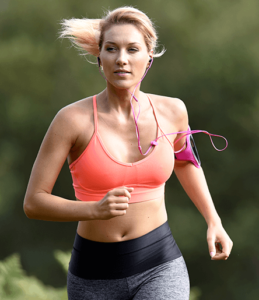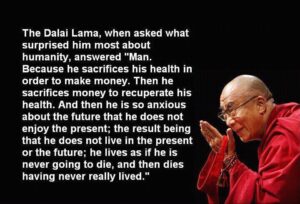Do energy drinks work and are they good for you?
They come in shots, cans and powdered form and they are big business.
In 2012, the sales of energy drinks in the United States was $12.5 billion dollars. By 2017 that figure will rise to $21 billion according to consumer marketing research company, Packaged Facts.
They are popular, but do they work? And more importantly, are they good for you? First, the good news. Energy drinks do increase alertness and can decrease sleepiness.
But the bad news is the price you pay may not be worth it. Because Energy Drinks are considered herbal supplements and, unlike soda, they are generally not regulated, which means the manufacturer can add whatever they want to them in whatever quantity they desire.
Having said that, let’s take a look at the three main ingredient groups in energy drinks:
1) Caffeine – An article on The Mayo Clinic website recommends that your daily caffeine intake be between 100 and 200 mg maximum per day. Energy drinks contain between 80 mg and 500 mg per can. Why do they contain caffeine? Caffeine makes you more alert, gives you more energy and helps with your concentration.
However too much caffeine can make you jittery, irritable, give you a tremor and accelerate your heart rate. One energy drink could raise your heart rate by 14 points. So if you suffer from high blood pressure you should definitely abstain. Many energy drink companies add Taurine (an amino acid) to increase the “effectiveness” of the caffeine.
2) B Vitamins – There are massive amounts of B Vitamins in Energy Drinks. Usually eight B Vitamins in total. According to Dr. Keri Peterson, they don’t boost your energy unless you are deficient in them and most people get enough of the various B Vitamins in their regular diet. She adds that getting too much is not a problem except in the case of B3 (Niacin) and B6. Excess B3 could give you blurry vision, liver abnormalities, stomach upset and flushing of the face. Many energy drinks give you 150% of the recommended daily intake of B3. Too much B6 could cause damage to your hands and feet which could cause numbness and tingling, says Dr. Peterson.
3) Natural stimulants – Most Energy drinks contain Guarana which does tend to boost energy. One Guarana seed has twice as much caffeine as a coffee bean. They also contain Ginseng which, some studies show boost your brain power, but only in amounts over 200 mg (most energy drinks contain less than 200 mg.) Ginseng has been known to interact with blood thinners so if you’re on a blood thinner you should avoid Energy Drinks. And, of course, energy drinks also contain sugar. Up to 14 teaspoons per Soda has around 11 teaspoons per serving. The recommended daily intake of sugar as advised by the American Heart Association is 6 teaspoons for women, 9 teaspoons for men. So if you drink just one energy drink you’ll already be over your recommended daily sugar intake which could lead to weight gain.
If you type “energy drink-related deaths” into Google, you’ll find that there are numerous reports of people whose deaths have been attributed to consuming energy drinks. Energy drinks have also been linked to insomnia, headaches, agitation and seizures.
In the United States, the number of people who went to the hospital emergency room after consuming energy drinks more than doubled from just over 10,000 in 2007 to nearly 21,000 in 2011 (according to a U.S. Substance Abuse and Mental Health Services Administration report.)
The age group attributed to the highest number of ER visits was people aged 18 to 25 followed by people from 26 to 39 years old. More than half of all ER visits involved energy drinks alone. 42 per cent involved energy drinks taken in combination with “other drugs” the report says.
The bottom line is that “yes” energy drinks give you a temporary rush of energy, but after that you generally come crashing down and the other side effects make it extremely questionable as to whether they are worth the risk.
If you need to have a little help with you energy, first make sure you going to bed by 9-10:30 pm, are sleeping 7-8 hours, drinking half your weight in OZ of water and eating for your metabolic type. AFTER THAT a good organic espresso or tea would definitely do the trick. Energy drinks are not worth it. Plus they are not recommended for children and never, never, never mix them with alcohol. They should also not be consumer before, during or after exercise.
Get more information @



Leave a Reply